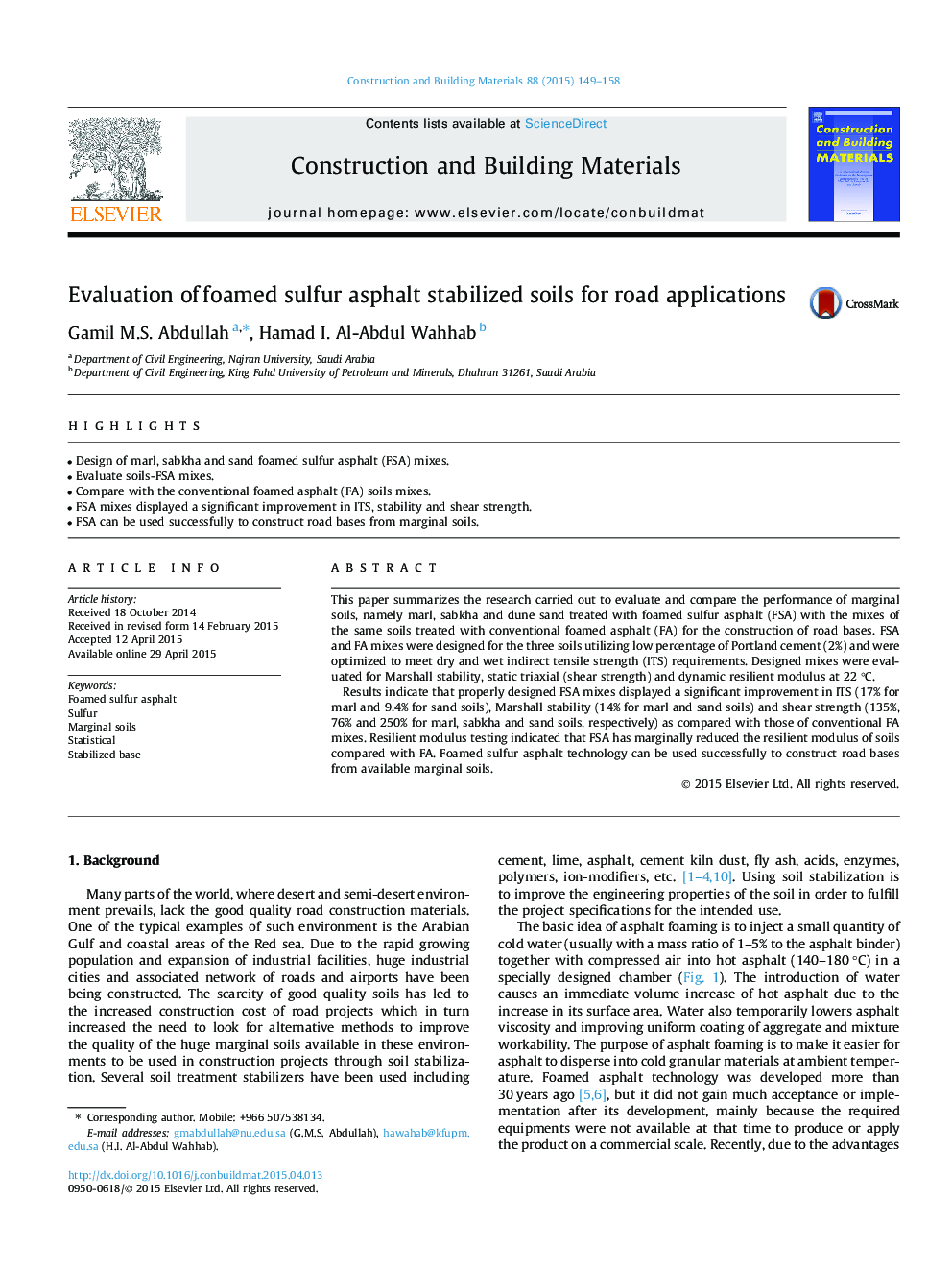| Article ID | Journal | Published Year | Pages | File Type |
|---|---|---|---|---|
| 256961 | Construction and Building Materials | 2015 | 10 Pages |
•Design of marl, sabkha and sand foamed sulfur asphalt (FSA) mixes.•Evaluate soils-FSA mixes.•Compare with the conventional foamed asphalt (FA) soils mixes.•FSA mixes displayed a significant improvement in ITS, stability and shear strength.•FSA can be used successfully to construct road bases from marginal soils.
This paper summarizes the research carried out to evaluate and compare the performance of marginal soils, namely marl, sabkha and dune sand treated with foamed sulfur asphalt (FSA) with the mixes of the same soils treated with conventional foamed asphalt (FA) for the construction of road bases. FSA and FA mixes were designed for the three soils utilizing low percentage of Portland cement (2%) and were optimized to meet dry and wet indirect tensile strength (ITS) requirements. Designed mixes were evaluated for Marshall stability, static triaxial (shear strength) and dynamic resilient modulus at 22 °C.Results indicate that properly designed FSA mixes displayed a significant improvement in ITS (17% for marl and 9.4% for sand soils), Marshall stability (14% for marl and sand soils) and shear strength (135%, 76% and 250% for marl, sabkha and sand soils, respectively) as compared with those of conventional FA mixes. Resilient modulus testing indicated that FSA has marginally reduced the resilient modulus of soils compared with FA. Foamed sulfur asphalt technology can be used successfully to construct road bases from available marginal soils.
